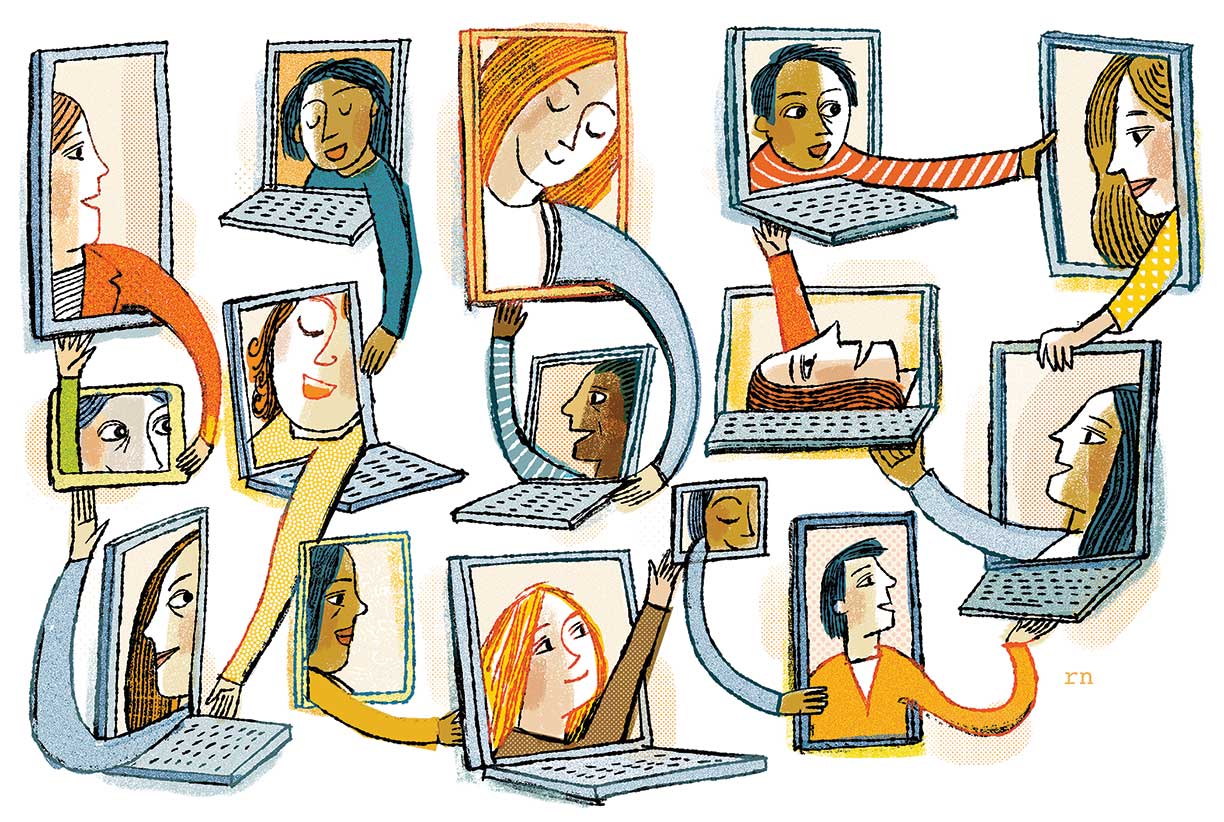Zooming Into Campus Life From a Distance
More than a hundred miles from campus, Grace Collins ’21 is building a virtual replica of Little Hall, the dorm she called home for the last semester and a half. Joined by her friends, Collins is well on her way to assembling a realistic and proportionally accurate model of Princeton’s campus on Minecraft, a popular video game.

“I guess leaving campus really suddenly was kind of a shock, and all of us had to say goodbye to each other and to a place that’s come to feel like home,” she said. “And so while we’re standing inside this little virtual rendition of Princeton and talking and laughing to each other, it’s kind of like being on campus.”
Princeton students and staff are finding new, innovative ways of keeping in touch with the Princeton experience. The Office of Wintersession and Campus Engagement has taken a leading role in creating events for students to plug back into their on-campus communities.
“We like to say that campus life is still a thing — we want students to still be able to explore and connect outside of their classes,” said Judy Jarvis, director of the office, which maintains a virtual-events calendar that features between 30 and 60 activities per week.
Students play a crucial role in shaping these activities, creating and hosting their own events. From his room in Montclair, New Jersey, Nate Perlmeter ’21 created “Social Distancing,” a live comedy show on YouTube. “Being an aspiring comedian, I thought I’d opportunize the sad circumstance of being separated from my friends for a month to stretch my content-creation legs and create a sort of late-night live talk show on Princeton themes from my couch,” he said.
The show, featuring Perlmeter and a series of his Princeton friends as “celebrity guests,” has been a fun way of staying connected to campus life during what he calls “forever-spring-break.”
For performing-arts groups, the semester online presented unique challenges. The Princeton Triangle Club, which had been scheduled to perform at Princeton Preview, in a spring show, and at Reunions, was devising ways to adapt. Club president John McEnany ’21 organized a free, recorded show that was expected to be available online in mid-May.
“Our seniors especially are disappointed at not being able to do Reunions, which is usually a time where we have a bunch of traditions surrounding thanking seniors for what they’ve done and welcoming new people into our club,” he said. “We’re still regularly Zooming and talking on the GroupMe, which is a great way to stay in touch, especially considering how rushed our goodbyes are.”
The Pace Center for Civic Engagement launched several new initiatives to strengthen Princeton’s community impact during the COVID-19 pandemic, including virtual community tutoring and a weekly podcast with faculty on the relationship between their research and the ongoing health crisis.
Charlotte E. Collins, associate director of the Pace Center, stressed the importance of community engagement and service as a part of the student experience and as a part of the University’s commitment to community needs. “One of the many wonderful things about Princetonians is their steadfast commitment to being of service to others,” she added. “We have found that students are looking to be of service both locally and in their home communities.”
Physically distant but virtually close-knit, Princeton students have found a way to tap into technology to create a new, and unprecedented, experience.












No responses yet